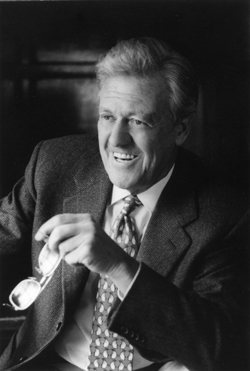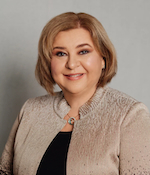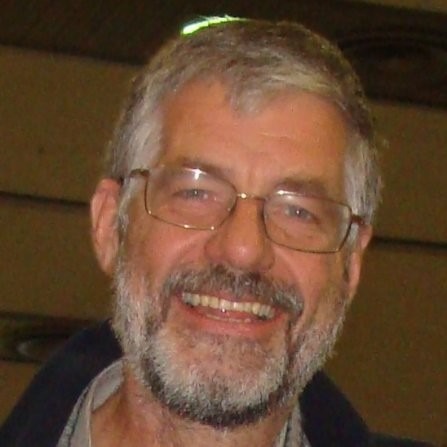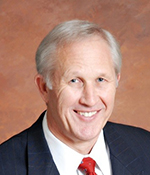Why Cross Culture?
By Richard Lewis
Because we’re no longer living in isolated bubbles.
Whether we travel, work remotely, or just interact online, our lives are more global than ever — and knowing how to navigate cultural differences makes all the difference.
Riversdown House, Hampshire, UK

Richard Lewis

Richard D. Lewis
Richard D. Lewis is a renowned British linguist, cross-cultural communication consultant, and author. He is best known for creating the Lewis Model of Cross-Cultural Communication, which classifies cultures into three major categories based on behavior and communication patterns:
Linear-active cultures – task-oriented, highly organized, and prefer doing one thing at a time (e.g., Germany, Switzerland).
Multi-active cultures – people-oriented, emotional, and often multitask (e.g., Italy, Latin America).
Reactive cultures – attentive, respectful listeners who prefer to react carefully rather than initiate action (e.g., Japan, China).
Lewis developed this model after visiting 135 countries, working in over 20, and analyzing data from more than 50,000 executives and 150,000 online surveys across 68 nationalities.
He is the author of the influential book “When Cultures Collide” (1996), which has sold over one million copies and is considered a cornerstone in the field of intercultural communication.

Richard D. Lewis
Richard D. Lewis is a renowned British linguist, cross-cultural communication consultant, and author. He is best known for creating the Lewis Model of Cross-Cultural Communication, which classifies cultures into three major categories based on behavior and communication patterns:
Linear-active cultures – task-oriented, highly organized, and prefer doing one thing at a time (e.g., Germany, Switzerland).
Multi-active cultures – people-oriented, emotional, and often multitask (e.g., Italy, Latin America).
Reactive cultures – attentive, respectful listeners who prefer to react carefully rather than initiate action (e.g., Japan, China).
Why Cross Culture?
Because we are no longer living in isolated Bubbles.
Nowadays, our lives are more connected than ever – and knowing how to navigate cultural differences makes all the difference

Richard Lewis

Richard D. Lewis
Richard D. Lewis is a renowned British linguist, cross-cultural communication consultant, and author. He is best known for creating the Lewis Model of Cross-Cultural Communication, which classifies cultures into three major categories based on behavior and communication patterns:
Linear-active cultures – task-oriented, highly organized, and prefer doing one thing at a time (e.g., Germany, Switzerland).
Multi-active cultures – people-oriented, emotional, and often multitask (e.g., Italy, Latin America).
Reactive cultures – attentive, respectful listeners who prefer to react carefully rather than initiate action (e.g., Japan, China).
Lewis developed this model after visiting 135 countries, working in over 20, and analyzing data from more than 50,000 executives and 150,000 online surveys across 68 nationalities.
He is the author of the influential book “When Cultures Collide” (1996), which has sold over one million copies and is considered a cornerstone in the field of intercultural communication.

Richard D. Lewis
Richard D. Lewis is a renowned British linguist, cross-cultural communication consultant, and author. He is best known for creating the Lewis Model of Cross-Cultural Communication, which classifies cultures into three major categories based on behavior and communication patterns:
Linear-active cultures – task-oriented, highly organized, and prefer doing one thing at a time (e.g., Germany, Switzerland).
Multi-active cultures – people-oriented, emotional, and often multitask (e.g., Italy, Latin America).
Reactive cultures – attentive, respectful listeners who prefer to react carefully rather than initiate action (e.g., Japan, China).
Why Cross Culture?
By Irina Yashkova
Cross-cultural understanding is essential—without it, you’re not leading, you’re guessing!
Speaking the same language isn’t enough. True connection and leadership come from knowing how cultures think, act, and communicate differently.
Cultural awareness turns confusion into clarity and builds real trust across borders.
Photo of USA from ISS

Irina Yashkova

Irina Yashkova
Houston, Texas, USA
Irina Yashkova is a highly accomplished cross-cultural expert and interpreter with a unique background. A native Russian who grew up in Siberia, she acts as a “cultural bridge” between Russia and the United States. A third-generation linguist, she has over two decades of professional experience.
Her exceptional track record is highlighted by over 15 years of dedicated support for NASA’s International Space Station Program. She served as a simultaneous and consecutive interpreter, liaison, and country advisor. Among her most notable achievements, she became one of only two interpreters in the world certified to interpret live during spacewalks in 2003. She is fully certified to support all Mission Control Center operations, including Space-to-Ground communication and Extravehicular Activities. Her work has been recognized in publications like the Moscow Times, which featured her in the article “NASA Interpreter’s Job Has Her Seeing Stars.”
This extensive experience in high-stakes, technical, and diplomatic environments, combined with her advanced degrees in interpretation and international management, makes her an ideal expert for complex cross-cultural and interpretation needs

Irina Yashkova
Houston, Texas, USA
Irina Yashkova is a highly accomplished cross-cultural expert and interpreter with a unique background. A native Russian who grew up in Siberia, she acts as a “cultural bridge” between Russia and the United States. A third-generation linguist, she has over two decades of professional experience.
Her exceptional track record is highlighted by over 15 years of dedicated support for NASA’s International Space Station Program. She served as a simultaneous and consecutive interpreter, liaison, and country advisor. Among her most notable achievements, she became one of only two interpreters in the world certified to interpret live during spacewalks in 2003. She is fully certified to support all Mission Control Center operations, including Space-to-Ground communication and Extravehicular Activities. Her work has been recognized in publications like the Moscow Times, which featured her in the article “NASA Interpreter’s Job Has Her Seeing Stars.”
This extensive experience in high-stakes, technical, and diplomatic environments, combined with her advanced degrees in interpretation and international management, makes her an ideal expert for complex cross-cultural and interpretation needs
Why Cross Culture?
Cross-cultural understanding is essential—without it, you’re not leading, you’re guessing!
Cultural awareness turns confusion into clarity and builds real trust across borders.

Irina Yashkova

Irina Yashkova
Houston, Texas, USA
Irina Yashkova is a highly accomplished cross-cultural expert and interpreter with a unique background. A native Russian who grew up in Siberia, she acts as a “cultural bridge” between Russia and the United States. A third-generation linguist, she has over two decades of professional experience.
Her exceptional track record is highlighted by over 15 years of dedicated support for NASA’s International Space Station Program. She served as a simultaneous and consecutive interpreter, liaison, and country advisor. Among her most notable achievements, she became one of only two interpreters in the world certified to interpret live during spacewalks in 2003. She is fully certified to support all Mission Control Center operations, including Space-to-Ground communication and Extravehicular Activities. Her work has been recognized in publications like the Moscow Times, which featured her in the article “NASA Interpreter’s Job Has Her Seeing Stars.”
This extensive experience in high-stakes, technical, and diplomatic environments, combined with her advanced degrees in interpretation and international management, makes her an ideal expert for complex cross-cultural and interpretation needs

Irina Yashkova
Houston, Texas, USA
Irina Yashkova is a highly accomplished cross-cultural expert and interpreter with a unique background. A native Russian who grew up in Siberia, she acts as a “cultural bridge” between Russia and the United States. A third-generation linguist, she has over two decades of professional experience.
Her exceptional track record is highlighted by over 15 years of dedicated support for NASA’s International Space Station Program. She served as a simultaneous and consecutive interpreter, liaison, and country advisor. Among her most notable achievements, she became one of only two interpreters in the world certified to interpret live during spacewalks in 2003. She is fully certified to support all Mission Control Center operations, including Space-to-Ground communication and Extravehicular Activities. Her work has been recognized in publications like the Moscow Times, which featured her in the article “NASA Interpreter’s Job Has Her Seeing Stars.”
This extensive experience in high-stakes, technical, and diplomatic environments, combined with her advanced degrees in interpretation and international management, makes her an ideal expert for complex cross-cultural and interpretation needs
Why Cross Culture?
By Philip Ray
Cross-cultural understanding is vital!
It breaks down barriers, fosters empathy, and fuels innovation.
In an interconnected world, valuing diverse perspectives and unfamiliar behaviour is not just ethical, it’s essential for global progress and peaceful coexistence!
Valle de la Luna, Atacama Desert. Chile

Philip Ray

Philip Ray
Santiago, Chile
Philip trained as a language instructor with Richard Lewis in 1975 and went on to teach in Spain before moving to South America. His language training consultancy later became the principle provider of Executive Language Training throughout Chile. As a representative of Stephen Covey, he focused on Building Trust and Principle-Centered Leadership. He has facilitated notable organizational transformations at Exxon, the Catholic University Hospital and BCI Bank and has trained over 2,000 participants from more than 40 leading corporations and institutions. He is currently pursuing his vision of building cultural, commercial and technological bridges between South America, Europe and the rest of the world. Cross-cultural awareness is, therefore, a crucial tool.

Philip Ray
Santiago, Chile
Philip trained as a language instructor with Richard Lewis in 1975 and went on to teach in Spain before moving to South America. His language training consultancy later became the principle provider of Executive Language Training throughout Chile. As a representative of Stephen Covey, he focused on Building Trust and Principle-Centered Leadership. He has facilitated notable organizational transformations at Exxon, the Catholic University Hospital and BCI Bank and has trained over 2,000 participants from more than 40 leading corporations and institutions. He is currently pursuing his vision of building cultural, commercial and technological bridges between South America, Europe and the rest of the world. Cross-cultural awareness is, therefore, a crucial tool.
Why Cross Culture?
Cross Cultural Understanding is Vital!
In an interconnected world, valuing diverse perspectives and unfamiliar behaviour is not just ethical, it’s essential for global progress and peaceful coexistence!

Philip Ray

Philip Ray
Santiago, Chile
Philip trained as a language instructor with Richard Lewis in 1975 and went on to teach in Spain before moving to South America. His language training consultancy later became the principle provider of Executive Language Training throughout Chile. As a representative of Stephen Covey, he focused on Building Trust and Principle-Centered Leadership. He has facilitated notable organizational transformations at Exxon, the Catholic University Hospital and BCI Bank and has trained over 2,000 participants from more than 40 leading corporations and institutions. He is currently pursuing his vision of building cultural, commercial and technological bridges between South America, Europe and the rest of the world. Cross-cultural awareness is, therefore, a crucial tool.

Philip Ray
Santiago, Chile
Philip trained as a language instructor with Richard Lewis in 1975 and went on to teach in Spain before moving to South America. His language training consultancy later became the principle provider of Executive Language Training throughout Chile. As a representative of Stephen Covey, he focused on Building Trust and Principle-Centered Leadership. He has facilitated notable organizational transformations at Exxon, the Catholic University Hospital and BCI Bank and has trained over 2,000 participants from more than 40 leading corporations and institutions. He is currently pursuing his vision of building cultural, commercial and technological bridges between South America, Europe and the rest of the world. Cross-cultural awareness is, therefore, a crucial tool.
Why Cross Culture?
By Frank Larkey
Because we are learning in the cognitive neurosciences and AI language models, not only that language and culture are different, but the very way humans think across cultures is profoundly different.
Houston, USA

Frank Larkey

Frank Larkey
Houston, USA
A developmental psychologist specialized in cognition and creativity, Frank Larkey brings to his clients broad expertise in executive leadership, cross-cultural integration, team coaching and methodological design. Some corporate clients who have benefitted from his support include: Guardian Savings, Compaq Computers, Right Management Associates, Cooper Cameron, Schlumberger, Gates Rubber, Shell Oil, Birkman International, The Baptist General Convention of Texas, St. Luke’s Episcopal Health Care Systems, Kelsey Seybold Clinics and Cooper Industries. Dr. Larkey is an innovative, strategic thinker with ample experience in international milieus and in operational areas including energizing of cultural change, cross-cultural performance, merger and acquisition analysis, top level succession planning and institution-specific leadership development programs.

Frank Larkey
Houston, USA
A developmental psychologist specialized in cognition and creativity, Frank Larkey brings to his clients broad expertise in executive leadership, cross-cultural integration, team coaching and methodological design. Some corporate clients who have benefitted from his support include: Guardian Savings, Compaq Computers, Right Management Associates, Cooper Cameron, Schlumberger, Gates Rubber, Shell Oil, Birkman International, The Baptist General Convention of Texas, St. Luke’s Episcopal Health Care Systems, Kelsey Seybold Clinics and Cooper Industries. Dr. Larkey is an innovative, strategic thinker with ample experience in international milieus and in operational areas including energizing of cultural change, cross-cultural performance, merger and acquisition analysis, top level succession planning and institution-specific leadership development programs.
Why Cross Culture?
Because we are learning in the cognitive neurosciences and AI language models, not only that language and culture are different, but the very way humans think across cultures is profoundly different..

Frank Larkey

Frank Larkey
Houston, USA
A developmental psychologist specialized in cognition and creativity, Frank Larkey brings to his clients broad expertise in executive leadership, cross-cultural integration, team coaching and methodological design. Some corporate clients who have benefitted from his support include: Guardian Savings, Compaq Computers, Right Management Associates, Cooper Cameron, Schlumberger, Gates Rubber, Shell Oil, Birkman International, The Baptist General Convention of Texas, St. Luke’s Episcopal Health Care Systems, Kelsey Seybold Clinics and Cooper Industries. Dr. Larkey is an innovative, strategic thinker with ample experience in international milieus and in operational areas including energizing of cultural change, cross-cultural performance, merger and acquisition analysis, top level succession planning and institution-specific leadership development programs.

Frank Larkey
Houston, USA
A developmental psychologist specialized in cognition and creativity, Frank Larkey brings to his clients broad expertise in executive leadership, cross-cultural integration, team coaching and methodological design. Some corporate clients who have benefitted from his support include: Guardian Savings, Compaq Computers, Right Management Associates, Cooper Cameron, Schlumberger, Gates Rubber, Shell Oil, Birkman International, The Baptist General Convention of Texas, St. Luke’s Episcopal Health Care Systems, Kelsey Seybold Clinics and Cooper Industries. Dr. Larkey is an innovative, strategic thinker with ample experience in international milieus and in operational areas including energizing of cultural change, cross-cultural performance, merger and acquisition analysis, top level succession planning and institution-specific leadership development programs.
Why Cross Culture?
By Irina Yashkova
Cross-cultural understanding is essential—without it, you’re not leading, you’re guessing!
Speaking the same language isn’t enough. True connection and leadership come from knowing how cultures think, act, and communicate differently.
Cultural awareness turns confusion into clarity and builds real trust across borders.
Photo of USA from ISS

Irina Yashkova

Irina Yashkova
Houston, Texas, USA
Irina Yashkova is a highly accomplished cross-cultural expert and interpreter with a unique background. A native Russian who grew up in Siberia, she acts as a “cultural bridge” between Russia and the United States. A third-generation linguist, she has over two decades of professional experience.
Her exceptional track record is highlighted by over 15 years of dedicated support for NASA’s International Space Station Program. She served as a simultaneous and consecutive interpreter, liaison, and country advisor. Among her most notable achievements, she became one of only two interpreters in the world certified to interpret live during spacewalks in 2003. She is fully certified to support all Mission Control Center operations, including Space-to-Ground communication and Extravehicular Activities. Her work has been recognized in publications like the Moscow Times, which featured her in the article “NASA Interpreter’s Job Has Her Seeing Stars.”
This extensive experience in high-stakes, technical, and diplomatic environments, combined with her advanced degrees in interpretation and international management, makes her an ideal expert for complex cross-cultural and interpretation needs

Irina Yashkova
Houston, Texas, USA
Irina Yashkova is a highly accomplished cross-cultural expert and interpreter with a unique background. A native Russian who grew up in Siberia, she acts as a “cultural bridge” between Russia and the United States. A third-generation linguist, she has over two decades of professional experience.
Her exceptional track record is highlighted by over 15 years of dedicated support for NASA’s International Space Station Program. She served as a simultaneous and consecutive interpreter, liaison, and country advisor. Among her most notable achievements, she became one of only two interpreters in the world certified to interpret live during spacewalks in 2003. She is fully certified to support all Mission Control Center operations, including Space-to-Ground communication and Extravehicular Activities. Her work has been recognized in publications like the Moscow Times, which featured her in the article “NASA Interpreter’s Job Has Her Seeing Stars.”
This extensive experience in high-stakes, technical, and diplomatic environments, combined with her advanced degrees in interpretation and international management, makes her an ideal expert for complex cross-cultural and interpretation needs
Why Cross Culture?
Cross-cultural understanding is essential—without it, you’re not leading, you’re guessing!
Cultural awareness turns confusion into clarity and builds real trust across borders.

Irina Yashkova

Irina Yashkova
Houston, Texas, USA
Irina Yashkova is a highly accomplished cross-cultural expert and interpreter with a unique background. A native Russian who grew up in Siberia, she acts as a “cultural bridge” between Russia and the United States. A third-generation linguist, she has over two decades of professional experience.
Her exceptional track record is highlighted by over 15 years of dedicated support for NASA’s International Space Station Program. She served as a simultaneous and consecutive interpreter, liaison, and country advisor. Among her most notable achievements, she became one of only two interpreters in the world certified to interpret live during spacewalks in 2003. She is fully certified to support all Mission Control Center operations, including Space-to-Ground communication and Extravehicular Activities. Her work has been recognized in publications like the Moscow Times, which featured her in the article “NASA Interpreter’s Job Has Her Seeing Stars.”
This extensive experience in high-stakes, technical, and diplomatic environments, combined with her advanced degrees in interpretation and international management, makes her an ideal expert for complex cross-cultural and interpretation needs

Irina Yashkova
Houston, Texas, USA
Irina Yashkova is a highly accomplished cross-cultural expert and interpreter with a unique background. A native Russian who grew up in Siberia, she acts as a “cultural bridge” between Russia and the United States. A third-generation linguist, she has over two decades of professional experience.
Her exceptional track record is highlighted by over 15 years of dedicated support for NASA’s International Space Station Program. She served as a simultaneous and consecutive interpreter, liaison, and country advisor. Among her most notable achievements, she became one of only two interpreters in the world certified to interpret live during spacewalks in 2003. She is fully certified to support all Mission Control Center operations, including Space-to-Ground communication and Extravehicular Activities. Her work has been recognized in publications like the Moscow Times, which featured her in the article “NASA Interpreter’s Job Has Her Seeing Stars.”
This extensive experience in high-stakes, technical, and diplomatic environments, combined with her advanced degrees in interpretation and international management, makes her an ideal expert for complex cross-cultural and interpretation needs
Why Cross Culture?
By Richard Lewis
Because we’re no longer living in isolated bubbles.
Whether we travel, work remotely, or just interact online, our lives are more global than ever — and knowing how to navigate cultural differences makes all the difference.
Riversdown House, Hampshire, UK

Richard Lewis

Richard D. Lewis
Richard D. Lewis is a renowned British linguist, cross-cultural communication consultant, and author. He is best known for creating the Lewis Model of Cross-Cultural Communication, which classifies cultures into three major categories based on behavior and communication patterns:
Linear-active cultures – task-oriented, highly organized, and prefer doing one thing at a time (e.g., Germany, Switzerland).
Multi-active cultures – people-oriented, emotional, and often multitask (e.g., Italy, Latin America).
Reactive cultures – attentive, respectful listeners who prefer to react carefully rather than initiate action (e.g., Japan, China).
Lewis developed this model after visiting 135 countries, working in over 20, and analyzing data from more than 50,000 executives and 150,000 online surveys across 68 nationalities.
He is the author of the influential book “When Cultures Collide” (1996), which has sold over one million copies and is considered a cornerstone in the field of intercultural communication.

Richard D. Lewis
Richard D. Lewis is a renowned British linguist, cross-cultural communication consultant, and author. He is best known for creating the Lewis Model of Cross-Cultural Communication, which classifies cultures into three major categories based on behavior and communication patterns:
Linear-active cultures – task-oriented, highly organized, and prefer doing one thing at a time (e.g., Germany, Switzerland).
Multi-active cultures – people-oriented, emotional, and often multitask (e.g., Italy, Latin America).
Reactive cultures – attentive, respectful listeners who prefer to react carefully rather than initiate action (e.g., Japan, China).
Why Cross Culture?
Because we are no longer living in isolated Bubbles.
Nowadays, our lives are more connected than ever – and knowing how to navigate cultural differences makes all the difference

Richard Lewis

Richard D. Lewis
Richard D. Lewis is a renowned British linguist, cross-cultural communication consultant, and author. He is best known for creating the Lewis Model of Cross-Cultural Communication, which classifies cultures into three major categories based on behavior and communication patterns:
Linear-active cultures – task-oriented, highly organized, and prefer doing one thing at a time (e.g., Germany, Switzerland).
Multi-active cultures – people-oriented, emotional, and often multitask (e.g., Italy, Latin America).
Reactive cultures – attentive, respectful listeners who prefer to react carefully rather than initiate action (e.g., Japan, China).
Lewis developed this model after visiting 135 countries, working in over 20, and analyzing data from more than 50,000 executives and 150,000 online surveys across 68 nationalities.
He is the author of the influential book “When Cultures Collide” (1996), which has sold over one million copies and is considered a cornerstone in the field of intercultural communication.

Richard D. Lewis
Richard D. Lewis is a renowned British linguist, cross-cultural communication consultant, and author. He is best known for creating the Lewis Model of Cross-Cultural Communication, which classifies cultures into three major categories based on behavior and communication patterns:
Linear-active cultures – task-oriented, highly organized, and prefer doing one thing at a time (e.g., Germany, Switzerland).
Multi-active cultures – people-oriented, emotional, and often multitask (e.g., Italy, Latin America).
Reactive cultures – attentive, respectful listeners who prefer to react carefully rather than initiate action (e.g., Japan, China).
Why Cross Culture?
By Frank Larkey
Because we are learning in the cognitive neurosciences and AI language models, not only that language and culture are different, but the very way humans think across cultures is profoundly different.
Houston, USA

Frank Larkey

Frank Larkey
Houston, USA
A developmental psychologist specialized in cognition and creativity, Frank Larkey brings to his clients broad expertise in executive leadership, cross-cultural integration, team coaching and methodological design. Some corporate clients who have benefitted from his support include: Guardian Savings, Compaq Computers, Right Management Associates, Cooper Cameron, Schlumberger, Gates Rubber, Shell Oil, Birkman International, The Baptist General Convention of Texas, St. Luke’s Episcopal Health Care Systems, Kelsey Seybold Clinics and Cooper Industries. Dr. Larkey is an innovative, strategic thinker with ample experience in international milieus and in operational areas including energizing of cultural change, cross-cultural performance, merger and acquisition analysis, top level succession planning and institution-specific leadership development programs.

Frank Larkey
Houston, USA
A developmental psychologist specialized in cognition and creativity, Frank Larkey brings to his clients broad expertise in executive leadership, cross-cultural integration, team coaching and methodological design. Some corporate clients who have benefitted from his support include: Guardian Savings, Compaq Computers, Right Management Associates, Cooper Cameron, Schlumberger, Gates Rubber, Shell Oil, Birkman International, The Baptist General Convention of Texas, St. Luke’s Episcopal Health Care Systems, Kelsey Seybold Clinics and Cooper Industries. Dr. Larkey is an innovative, strategic thinker with ample experience in international milieus and in operational areas including energizing of cultural change, cross-cultural performance, merger and acquisition analysis, top level succession planning and institution-specific leadership development programs.
Why Cross Culture?
Because we are learning in the cognitive neurosciences and AI language models, not only that language and culture are different, but the very way humans think across cultures is profoundly different..

Frank Larkey

Frank Larkey
Houston, USA
A developmental psychologist specialized in cognition and creativity, Frank Larkey brings to his clients broad expertise in executive leadership, cross-cultural integration, team coaching and methodological design. Some corporate clients who have benefitted from his support include: Guardian Savings, Compaq Computers, Right Management Associates, Cooper Cameron, Schlumberger, Gates Rubber, Shell Oil, Birkman International, The Baptist General Convention of Texas, St. Luke’s Episcopal Health Care Systems, Kelsey Seybold Clinics and Cooper Industries. Dr. Larkey is an innovative, strategic thinker with ample experience in international milieus and in operational areas including energizing of cultural change, cross-cultural performance, merger and acquisition analysis, top level succession planning and institution-specific leadership development programs.

Frank Larkey
Houston, USA
A developmental psychologist specialized in cognition and creativity, Frank Larkey brings to his clients broad expertise in executive leadership, cross-cultural integration, team coaching and methodological design. Some corporate clients who have benefitted from his support include: Guardian Savings, Compaq Computers, Right Management Associates, Cooper Cameron, Schlumberger, Gates Rubber, Shell Oil, Birkman International, The Baptist General Convention of Texas, St. Luke’s Episcopal Health Care Systems, Kelsey Seybold Clinics and Cooper Industries. Dr. Larkey is an innovative, strategic thinker with ample experience in international milieus and in operational areas including energizing of cultural change, cross-cultural performance, merger and acquisition analysis, top level succession planning and institution-specific leadership development programs.
Why Cross Culture?
By Philip Ray
Cross-cultural understanding is vital!
It breaks down barriers, fosters empathy, and fuels innovation.
In an interconnected world, valuing diverse perspectives and unfamiliar behaviour is not just ethical, it’s essential for global progress and peaceful coexistence!
Valle de la Luna, Atacama Desert. Chile

Philip Ray

Philip Ray
Santiago, Chile
Philip trained as a language instructor with Richard Lewis in 1975 and went on to teach in Spain before moving to South America. His language training consultancy later became the principle provider of Executive Language Training throughout Chile. As a representative of Stephen Covey, he focused on Building Trust and Principle-Centered Leadership. He has facilitated notable organizational transformations at Exxon, the Catholic University Hospital and BCI Bank and has trained over 2,000 participants from more than 40 leading corporations and institutions. He is currently pursuing his vision of building cultural, commercial and technological bridges between South America, Europe and the rest of the world. Cross-cultural awareness is, therefore, a crucial tool.

Philip Ray
Santiago, Chile
Philip trained as a language instructor with Richard Lewis in 1975 and went on to teach in Spain before moving to South America. His language training consultancy later became the principle provider of Executive Language Training throughout Chile. As a representative of Stephen Covey, he focused on Building Trust and Principle-Centered Leadership. He has facilitated notable organizational transformations at Exxon, the Catholic University Hospital and BCI Bank and has trained over 2,000 participants from more than 40 leading corporations and institutions. He is currently pursuing his vision of building cultural, commercial and technological bridges between South America, Europe and the rest of the world. Cross-cultural awareness is, therefore, a crucial tool.
Why Cross Culture?
Cross Cultural Understanding is Vital!
In an interconnected world, valuing diverse perspectives and unfamiliar behaviour is not just ethical, it’s essential for global progress and peaceful coexistence!

Philip Ray

Philip Ray
Santiago, Chile
Philip trained as a language instructor with Richard Lewis in 1975 and went on to teach in Spain before moving to South America. His language training consultancy later became the principle provider of Executive Language Training throughout Chile. As a representative of Stephen Covey, he focused on Building Trust and Principle-Centered Leadership. He has facilitated notable organizational transformations at Exxon, the Catholic University Hospital and BCI Bank and has trained over 2,000 participants from more than 40 leading corporations and institutions. He is currently pursuing his vision of building cultural, commercial and technological bridges between South America, Europe and the rest of the world. Cross-cultural awareness is, therefore, a crucial tool.

Philip Ray
Santiago, Chile
Philip trained as a language instructor with Richard Lewis in 1975 and went on to teach in Spain before moving to South America. His language training consultancy later became the principle provider of Executive Language Training throughout Chile. As a representative of Stephen Covey, he focused on Building Trust and Principle-Centered Leadership. He has facilitated notable organizational transformations at Exxon, the Catholic University Hospital and BCI Bank and has trained over 2,000 participants from more than 40 leading corporations and institutions. He is currently pursuing his vision of building cultural, commercial and technological bridges between South America, Europe and the rest of the world. Cross-cultural awareness is, therefore, a crucial tool.
Cross-Cultural Ambassadors is an association of intercultural specialists with a passion for improving the effectiveness of global initiatives, increasing awareness of this vital element of global communication.

Cross Culture Ambassadors is an association of intercultural specialists from around the world with a passion to increase the awareness of this vital element of global communication to improve the effectiveness of business, scientific, educational, health and ecological initiatives.

News / Events


Cross Cultural Encounters
Every month we shall be inviting members of our community to share their experience in informal pre-recorded conversations on the subjects of their choice on Cross Culture.
Listen here to Irina telling Philip about her typical day working at the International Space Station with Nasa.
News / Events


Cross Culture Encounters
Every month we shall be inviting members of our community to share their experience in informal pre-recorded conversations on the subjects of their choice on Cross-culture.
Listen here to Irina telling Philip about her typical day working at the International Space with Nasa.
Full Video Here: https://youtu.be/6YwRQtIgYBo




